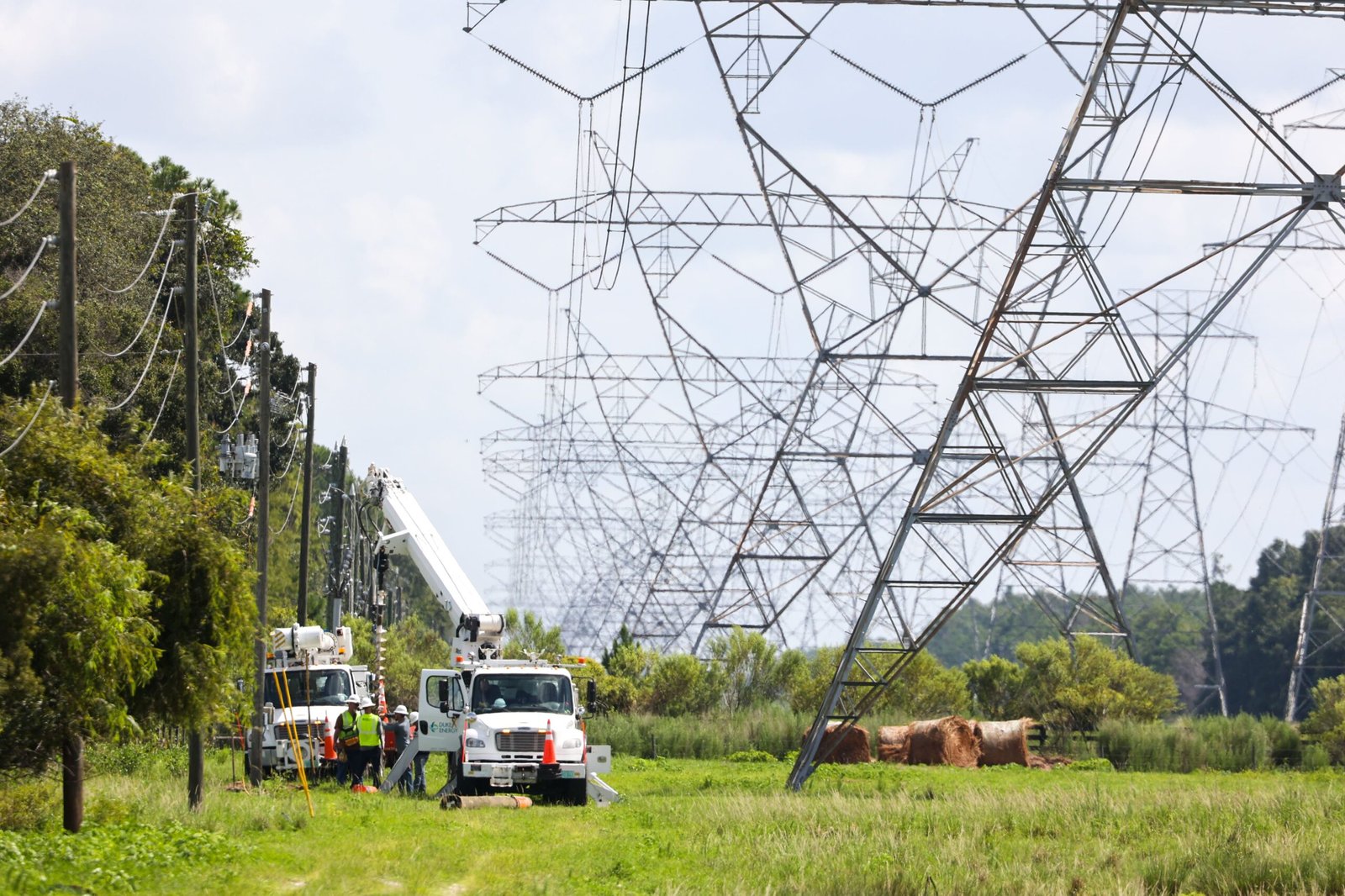State regulators in Tallahassee approved an agreement Wednesday that will increase the base rates on Duke Energy customers’ electric bills, making a final decision in a months-long case that will impact nearly 2 million Floridians.
Governor-appointed members of the Florida Public Service Commission, which regulates utilities, praised the 338-page settlement agreement as a fair compromise between the needs of the utility and the public. After months of intense behind-the-scenes negotiations between Duke, groups representing residential customers, industrial plants, environmentalists and more, the final agreement did not draw opposition from any parties.
That was a rare show of unity — particularly after the case began, in the words of Office Public Counsel lawyer Charles Rehwinkel, as “highly controversial and at times bitterly contested.” In its original request, Duke had sought an $820 million increase over three years, in addition to a rate of shareholder profit well above the national average. In the final agreement, it ended up with a $262 million increase, plus up to $141 million for new solar plants as they are completed.
“Based on what Duke initially came in with, versus where we’re ending up, there’s no doubt there’s substantial savings for the customers,” commissioner Gary Clark said.
Mike La Rosa, the chairperson of the commission, said the agreement was “1000%” for the “greater good” of the public.
Under the agreement, customers will see their base rates rise over the next two years, but they will remain level in 2027. Base rates are one major component of electric bills, which also include other charges for things like fuel.
In its initial request to regulators, Duke has said it needs to collect more money from base rates because although more people are moving into its service territory, the amount of energy each customer uses is going down. Plus, Duke plans to build more solar energy farms. The company said it was projecting shrinking margins.
Under the agreement approved Wednesday, Duke’s rate of return for shareholders would have a midpoint of 10.3% — which is still higher than the national average, but lower than its initial request.
Earlier this summer, Tampa Bay residents showed up in force to rare, in-person meetings of the Public Service Commission to plead with regulators to say no to any more increases on their bills. For hours, dozens of people described their families’ finances as increasingly precarious because of the region’s exploding cost of living.
Catch up on top stories before rush hour
Become a Times subscriber to get our afternoon newsletter, The Rundown
We’ll break down Tampa Bay’s biggest environment, politics, business, education and culture news every weekday.
You’re all signed up!
Want more of our free, weekly newsletters in your inbox? Let’s get started.
Commissioner Gabriella Passidomo said Wednesday that testimony from residents, particularly those who depend on electricity for their medical devices, “has been in my mind.”
Duke Energy has said that despite the base rate hikes, it expects customers will pay less in January 2025 compared to December of this year, as other charges expire from their bills. Costs could still be added for consumers for other reasons, such as if the price of fuel spikes — as it did in recent years, or if the utility incurs expenses from hurricanes.
The final agreement includes other concessions sought by consumer advocacy groups, including that residential customers’ rate hikes will be smaller than those paid by businesses and industrial plants. Duke will also no longer charge a reconnection fee after someone’s power is shut off, nor will it disconnect anyone’s power on days when the temperature reaches at least 95 degrees.
Lower-income customers will also be allowed to pay less than Duke’s minimum bill amount of $30, if they request a credit on their account.
Wednesday’s decision also cements the future of Duke customers’ bills at a time when the utility is on the defensive in Pinellas County. Officials in both Clearwater and St. Petersburg have floated leaving the utility after questioning if its rates are too high.
This is a breaking story. Check back for updates.




